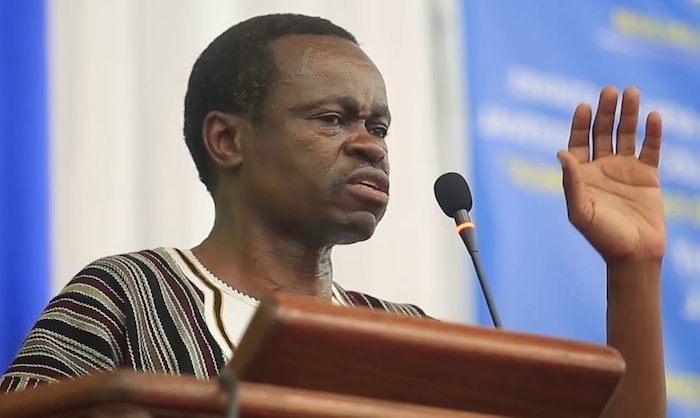At 65, Nigeria must lead Africa in power and industry, Lumumba declares
Renowned Pan-Africanist and public intellectual, Professor Patrick Loch Otieno Lumumba, has issued a scathing critique of Africa’s persistent underdevelopment, questioning the continent’s ability to benefit from the African Continental Free Trade Area (AfCFTA) in the absence of robust manufacturing and stable electricity. Delivering the keynote address at Nigeria’s 65th Independence Day celebration hosted by Covenant Church in Lagos, Lumumba warned that Africa’s economic dreams risk becoming illusions unless leaders urgently tackle the continent’s energy and industrialisation crisis.
Lumumba, widely regarded for his fiery rhetoric on African unity and governance, told the audience that free trade without production is meaningless. “We speak of the Africa Continental Free Trade Area, but I ask you, what shall we trade among ourselves if we do not manufacture?” he said. “How shall we be competitive when the very foundation of modern civilisation electricity is epileptic not only in Nigeria but across Africa?”
The Kenyan lawyer and former director of the Kenya Anti-Corruption Commission drew thunderous applause as he lamented Africa’s inability to provide stable power despite decades of investment and promises. “To provide stable power is not rocket science,” he stressed. “Yet in our hotels, in our homes, in our industries, within an hour the lights go off. Who cursed us? Who bewitched us that we cannot supply our people with the basics of modern living?”
Nigeria, Africa’s largest economy and most populous nation, has long grappled with a power crisis that cripples productivity, inflates costs for businesses, and undermines quality of life. Despite generating more than 13,000 megawatts of electricity on paper, the country rarely distributes more than 4,000 to 5,000 megawatts to its 200 million citizens. Frequent blackouts force companies and households to rely on costly generators, while government after government has pledged reforms that rarely translate into results. Lumumba’s speech framed Nigeria’s plight as emblematic of the wider African problem.
“Our tragedy,” he argued, “is not lack of knowledge, but lack of will, lack of courage, and lack of leadership committed to Africa’s transformation.” He reminded his listeners that other nations once at the same developmental stage have leapfrogged into industrial powers by prioritising energy and manufacturing. “When Asia was rising, she knew that without electricity, there is no industry, and without industry, there is no prosperity,” he said. “Africa must wake up from her slumber, for the world will not wait for us.”
The professor further posed a series of questions that highlighted the contradictions in Africa’s current path. “If Africa cannot produce and manufacture at scale, what exactly will we trade under AfCFTA? Why has electricity a simple cornerstone of industrialisation remained unstable across Africa despite decades of promises and resources? Who benefits from keeping Africa in perpetual dependence and underdevelopment? Can we truly achieve economic liberation without first achieving energy independence?”
For many in the audience, Lumumba’s challenge resonated with Nigeria’s independence anniversary, a day meant to reflect on the nation’s journey since 1960. While Nigeria has achieved political sovereignty, its economic aspirations remain hampered by structural weaknesses. Lumumba urged Nigerians and Africans at large to see independence not merely as the lowering of colonial flags but as the pursuit of true self-sufficiency. “Sixty-five years of independence must mean more than annual celebrations. It must mean interrogating why Africa’s children still seek opportunities abroad, why our industries remain dormant, and why our power supply flickers like a candle in the wind,” he said.
Observers noted that his remarks touched on a sensitive but critical debate surrounding AfCFTA, which came into effect in 2021 with the goal of creating the world’s largest single market. While policymakers have hailed it as a historic step for economic integration, critics argue that without industrial capacity, Africa risks merely trading in raw materials and finished goods from abroad. Lumumba echoed these concerns, insisting that Africa cannot become competitive globally if it continues to import basic goods that it should be producing.
“In the 21st century, we cannot be a continent that exports cocoa and imports chocolate, that exports crude oil and imports petrol, that exports cotton and imports shirts,” he said. “That is not trade, that is dependency disguised as progress.”
The outspoken academic also appealed directly to Africa’s youth, describing them as the generation that must break the cycle of underdevelopment. “Young Africans must demand accountability. They must ask their leaders not only what they promise, but what they deliver. They must insist that electricity flows, that factories rise, that jobs are created, and that Africa manufactures, not merely consumes,” he said.
As his speech concluded, Lumumba’s words drew both standing ovations and sober reflection from attendees. Many agreed that the questions he raised went beyond Nigeria’s Independence Day and touched the heart of Africa’s struggle for genuine development. “The future of AfCFTA, the future of Africa’s dignity, rests not in our rhetoric, but in our resolve to fix the fundamentals,” he declared. “Without energy, there is no industry. Without industry, there is no wealth. Without wealth, there is no power. And without power, Africa shall remain a giant in chains.”
His remarks have since sparked debates on social media, with commentators praising his courage to call out Africa’s leadership failures. Others urged policymakers to heed his warning and move swiftly to resolve the continent’s electricity challenges as a prerequisite for meaningful economic growth.
At 65, Nigeria stands at a crossroads celebrating the progress of nationhood while confronting the realities of persistent underdevelopment. Lumumba’s message at Covenant Church was clear: Africa’s future cannot be outsourced, and its destiny will only be secured when it builds the infrastructure, industries, and energy systems necessary to sustain prosperity.

